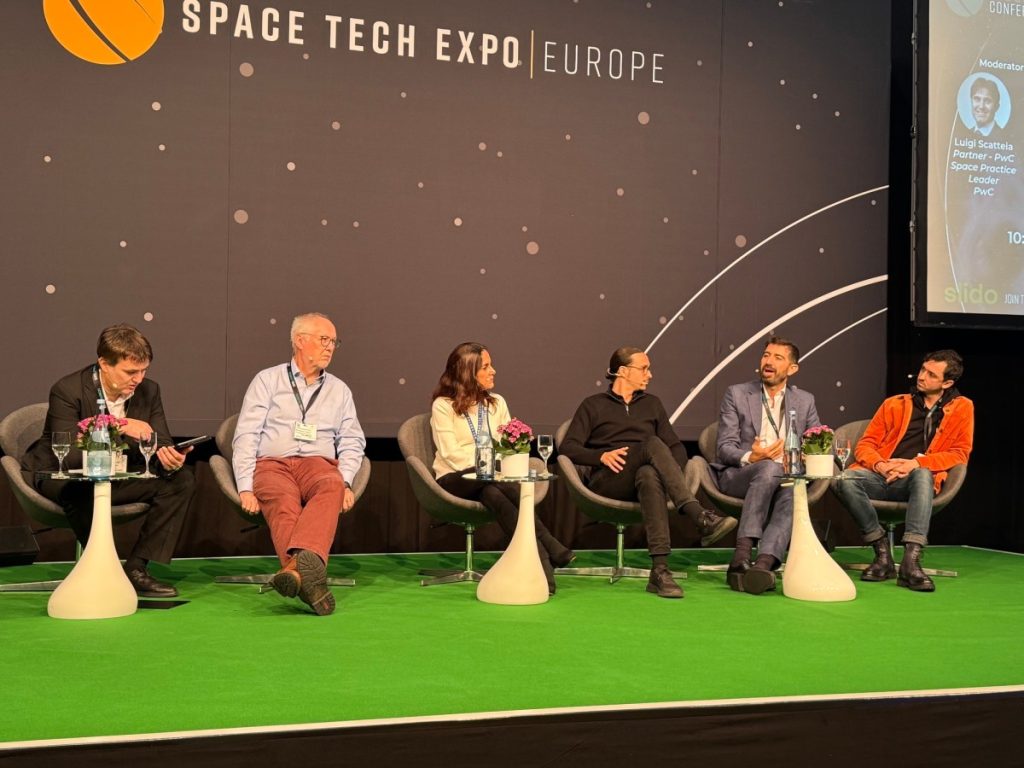BREMEN, Germany — Companies and investors want European governments to take more risks and buy services from space startups, rather than awarding grants, to make the industry more competitive with American counterparts.
A long-standing challenge for European space startups has been access to capital, which was perceived to be more readily available in the United States. That was particularly true as companies tried to raise later, larger rounds to scale up their businesses.
“Europe has done all the hard work to get the companies up and running, but then when it comes to the growth stage, nobody’s there to support them,” said Daniel Biedermann, partner at Luxembourg-based NewSpace Capital, which focuses on growth-stage space startups, during a panel at Space Tech Expo Europe here Nov. 20. That causes companies to either stagnate as small businesses or to go elsewhere, like the United States, to continue to grow.
That has started to change, though, as more European companies raise larger rounds. An example is The Exploration Company’s $160 million Series B round announced Nov. 18 that came from European investors.
Biedermann and others on the panel said a related problem has been an excess of funding in early stages of companies. “There’s often this notion that there’s a lack of capital. I don’t think there’s a lack of capital. I think there’s too much capital in the early stages,” said Sven Meyer-Brunswick, principal at Alpine Space Ventures, a fund that has invested in European and American space companies.
That excess of funding, primarily in the form of government grants to support technology development, creates companies that “go from one grant to another” and never grow to the point where they can create the returns that venture investors demand. “That doesn’t yield competitive solutions in an international environment.”
He and others on the panel said that such funding distorts the market. “Everybody gets funds, and even if it doesn’t go well they still get funds because they are the national darling of someone,” said Biedermann. “For me as an investor, this is a no-go area because I want to see, at some point, winners emerging.”
Panelists called on European governments to accept some risk and support companies through contracts for products and services, knowing there is a chance some companies may fail. “We don’t let companies fail,” he said, “so that the ones that survive actually succeed.”
“In the U.S., we see a very strong end customer that is willing to take risks,” Meyer-Brunswick said, referring to federal government agencies like the U.S. Space Force’s Space Development Agency, which has awarded multiple contracts for various phases of its low Earth constellation. “They’re not trying to avoid risk at all costs, but manage that risk by putting their eggs in multiple baskets.”
“We need to accept risk and buy new solutions in the market, multiple new ones,” he said of European governments. “Let’s see what comes out of it. One may succeed, and then fund these solutions all the way to end.”
European companies want governments to adopt approaches such as the use of commercial partnerships and services contracts like that in the United States. Stella Guillen, chief commercial officer of launch company Isar Aerospace, mentioned the impact that NASA’s commercial cargo program had on SpaceX.
“That contract took SpaceX to a different level,” she said. “This is the thing that we need here in Europe.”
A European Space Agency official on the panel said it is trying to do just that. “ESA has always tried to support commercial activity,” said Gianluigi Baldesi, head of ESA’s ventures and financing office. That includes contracts where ESA procures services rather than supporting research and development.
But, he argued, European companies must do more to sell to private customers, particularly within Europe. “We cannot be the customer for everything,” he said. “We are pushing companies to go outside and start to sell their products, and we see there huge challenges.”
European space companies do have some advantages over their American counterparts. David Ordonez of the NATO Innovation Fund, established by 24 NATO member states to fund companies working on “deep tech” fields such as space, noted that the continent has a strong technological base and talent that costs less than in the United States.
“We can develop technology for 50% cheaper,” he said, provided companies can secure sufficient investment. “We need to work on that to avoid these companies leaving Europe and losing sovereignty of these technologies.”

